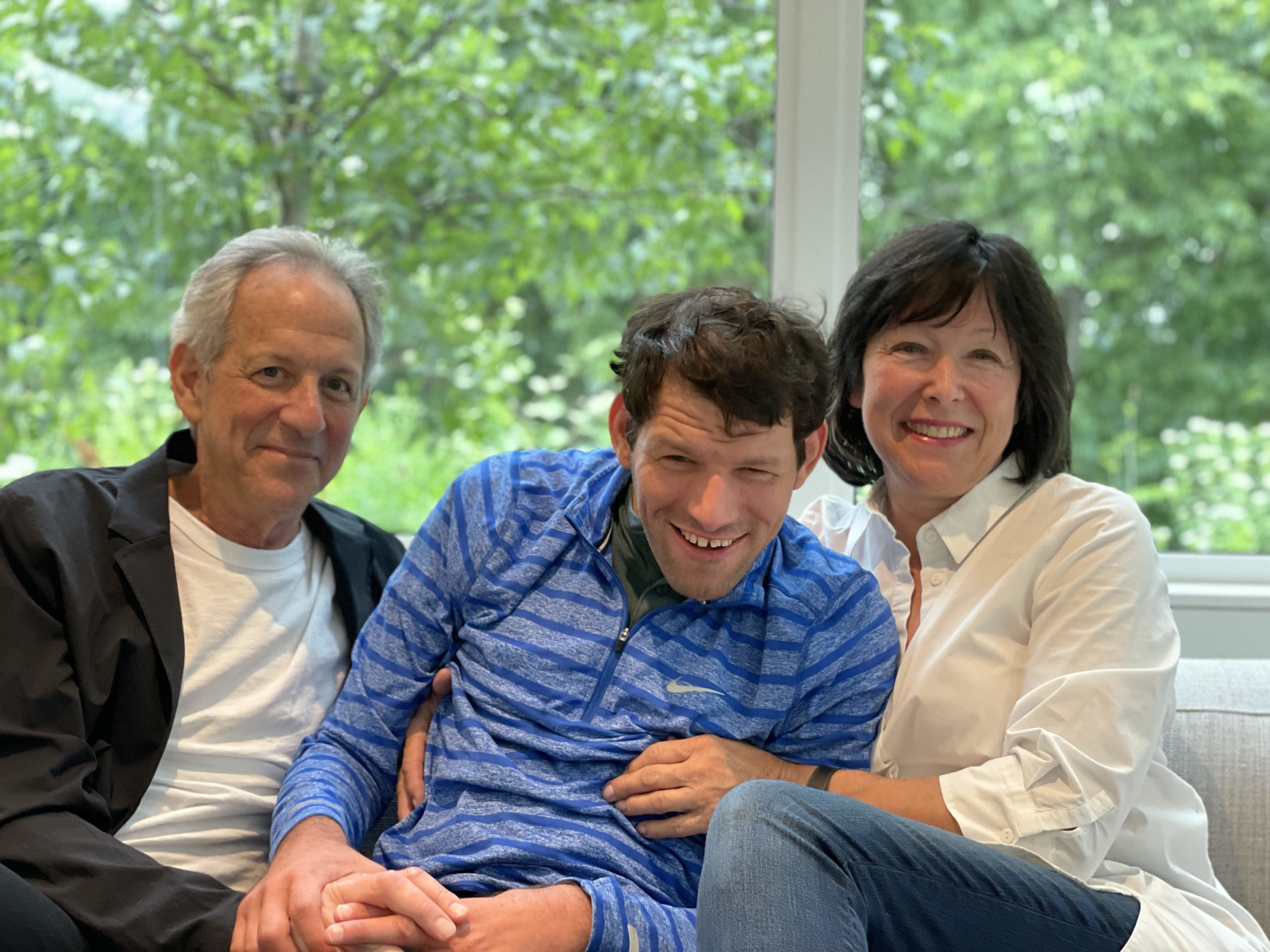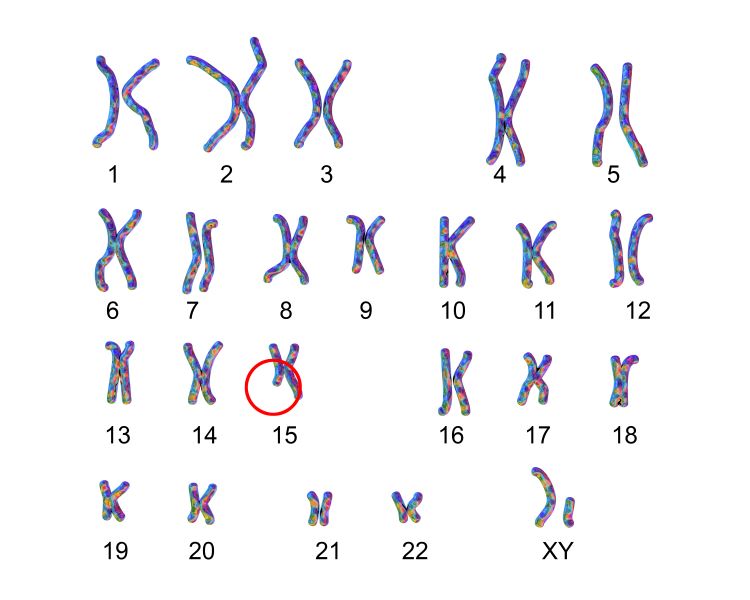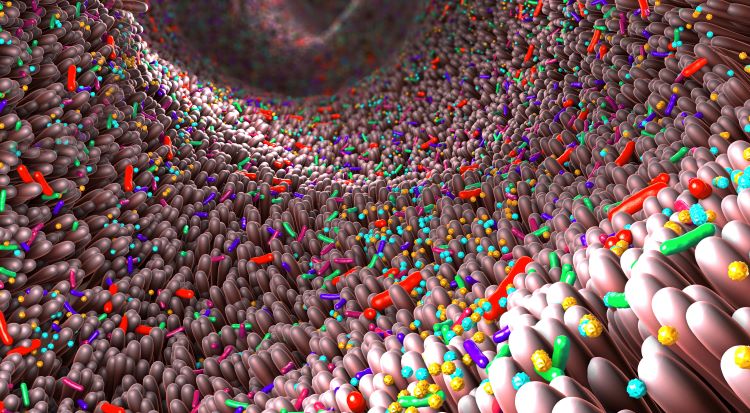One in every 15,000 people is born with a rare neuro-genetic disorder called Angelman Syndrome (AS). AS impacts the lives of about 500,000 individuals worldwide. One of these individuals is Jacob Pritzker, the son of Fred and Renee Pritzker, who founded Pritzker Hageman law firm. Jacob was diagnosed with Angelman Syndrome shortly after his birth in 1985. In honor of their son, Fred and Renee have been passionate about advocating for the disability rights and providing key funding for scientific research to ensure that individuals with AS receive the best care possible. Fred and Renee were proud to announce a scientific research grant that will support novel research of the gut microbiome in Angelman Syndrome.

Understanding the Genetics of Angelman Syndrome
Angelman Syndrome is caused by the absence or malfunction of the UBE3A gene, located at the 15th chromosome. It is the job of the UBE3A gene to “tag” certain proteins for degradation in the proteasome, which is the cellular equivalent of a garbage disposal. This process helps maintain the normal function of cells.

Every cell of the human body has 46 chromosomes, which contain the detailed information our cells need to tell our brains and bodies how to function and grow. We inherit one copy of each chromosome from both parents, which serves as a backup system when there are inevitable errors in our chromosomes. Some genes on our chromosomes are expressed (turned on) and others are silent (turned off). In typical humans, the UBE3A gene from the father is silent, while the UBE3A gene from the mother helps the brain develop. In people with AS, the maternal UBE3A gene does not function normally, which prevents the brain from receiving the information it needs to develop and control speech, learning, and movement.
Gut Microbiome Research in Angelman Syndrome
While researchers have made great strides in identifying ways to remedy abnormal or missing genes during the early stages of brain development, there are countless people whose window of opportunity has already passed. Many adults with Angelman Syndrome experience complications that affect their quality of life. These complications can include debilitating gastrointestinal (GI) issues that show up as nausea, vomiting, constipation, and anxiety, often leading to non-epileptic tremors.
In the past, most AS-focused research has been dedicated to the worthy and important cause of finding a cure for the disorder. By comparison, there has been minimal research devoted to improving the quality of life for individuals who already have AS. Through their son Jacob, Fred and Renee have recognized that although most adults with AS have intractable GI issues (a type of severe pain for which there is currently no cure), virtually no research has been done to solve that problem.

Fred and Renee have played a significant role in nurturing and funding an increase in scientific research related to helping people who are living with AS. They helped underwrite one of the first AS clinics at Massachusetts General Hospital, which has more patients and expertise than any other in diagnosing and treating people with AS from birth to adulthood. In conjunction with the Angelman Syndrome Foundation, Fred and Renee provided crucial funding for the first scientific research grant to study the gut microbiome in Angelman Syndrome. The first grant recipient is Dr. Anita Aalia Panjwani from Purdue University.
The gut microbiome is located in a pocket of the large intestine called the cecum. It is comprised of bacteria, viruses, fungi, and other microorganisms.
Regarding the bacterial composition of the gut microbiome, there are hundreds of bacterial species encoding nearly 2 million genes. The total number of bacteria comprising the gut microbiome is staggeringly large: several trillion. Indeed, there are more bacteria in your body than human cells.
The role of the gut microbiome in causing illness in humans is incredibly complex. Trying to understand that role in the context of a particular disorder like Angelman Syndrome is harder still.
GI symptoms in people with AS may also result from the abnormal morphology of nerve cells in the gut (approximately 100 million nerve cells line the human gut). At present, no data exists regarding whether abnormalities in brain cells known to exist in AS are also present in gut nerve cells and, if so, how or whether those abnormalities contribute to GI symptoms.
The Pritzkers have also been committed to funding research to identify morphological changes in gut nerve cells.
It has been Fred and Renee’s hope that researchers will continue to focus on studying how Angelman Syndrome affects changes in gut cells, which may lead to therapies that reduce or eliminate GI problems that affect so many people with AS.
“Making sure my son Jacob’s life and the lives of other people with disabilities are safe, happy, and fulfilling is my passion. It affects everything I do, including how I practice law and the way in which I relate to my clients, many of whom are struggling with their own injuries and disabilities. Here’s what I’ve learned: in one way or another, we’re all ‘disabled’ to some degree. But we are not defined by our disabilities. We deserve to be loved, have friends, have fun, do interesting things and be accepted for who we are rather than what we can do. Raising a child with disabilities is a challenge, but the love we share and the lessons we’ve learned transcend everything else.”
The Jacob Pritzker Fellowship Program
Fred Pritzker dedicated his life to ensuring that his son Jacob received the best care possible. In honor of Fred’s legacy, the Angelman Syndrome Foundation created the Jacob Pritzker Fellowship Program to address the ongoing need for more physicians who are experienced in treating individuals with Angelman Syndrome. This funding opportunity will support an investigator or clinical training program for an early career physician who will be engaged in Angelman-related activities during their fellowship year.